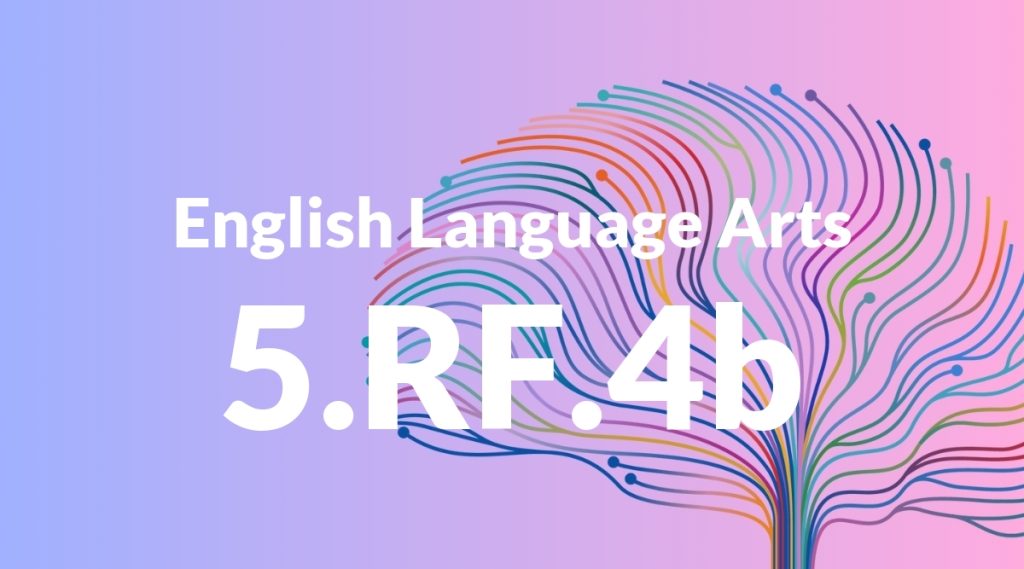Standard: 5.RF.4b – Read grade-level prose and poetry orally with accuracy, appropriate rate, and expression on successive readings.
Grade level: Grade 5
Subject: English Language Arts
Domain: Reading: Foundational Skills
Teacher Overview
This standard emphasizes the importance of reading prose and poetry aloud with accuracy, appropriate rate, and expression. Mastery of this skill is crucial for students to become fluent readers who can engage an audience and convey meaning effectively. Students need to have solid decoding skills, familiarity with sentence structures, and some experience reading aloud to meet this standard.
After mastering this standard, students will be better prepared for advanced comprehension and analysis of texts, and will have improved public speaking skills.
Common Misconception 1
A common misconception is that speed is the most important aspect of reading aloud. This is incorrect because reading too quickly can lead to mistakes and a lack of comprehension.
Intervention 1
To remediate this misconception, teachers can model fluent reading, emphasizing accuracy and expression over speed, and provide students with opportunities to practice these skills in a supportive environment.
Common Misconception 2
Another misconception is that expression is not important when reading aloud. This is incorrect because expression helps to convey the meaning and emotions of the text, making it more engaging for listeners.
Intervention 2
Teachers can demonstrate the impact of expression by reading the same passage with and without expression, showing students how it affects understanding and engagement.
Prerequisite Knowledge
Students should have basic decoding skills, an understanding of sentence structure, and experience with reading simple texts aloud.
Subsequent Knowledge
Students will develop advanced comprehension skills, the ability to analyze texts more deeply, and improved public speaking abilities.
Instructional Activities
- Guided oral reading sessions
- Reader’s theater performances
- Poetry recitals
- Partner reading exercises
- Recording and reviewing oral readings




